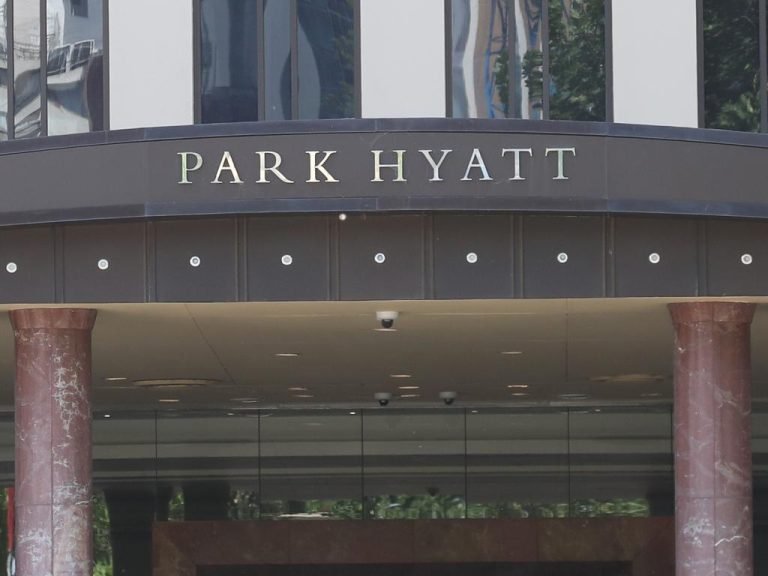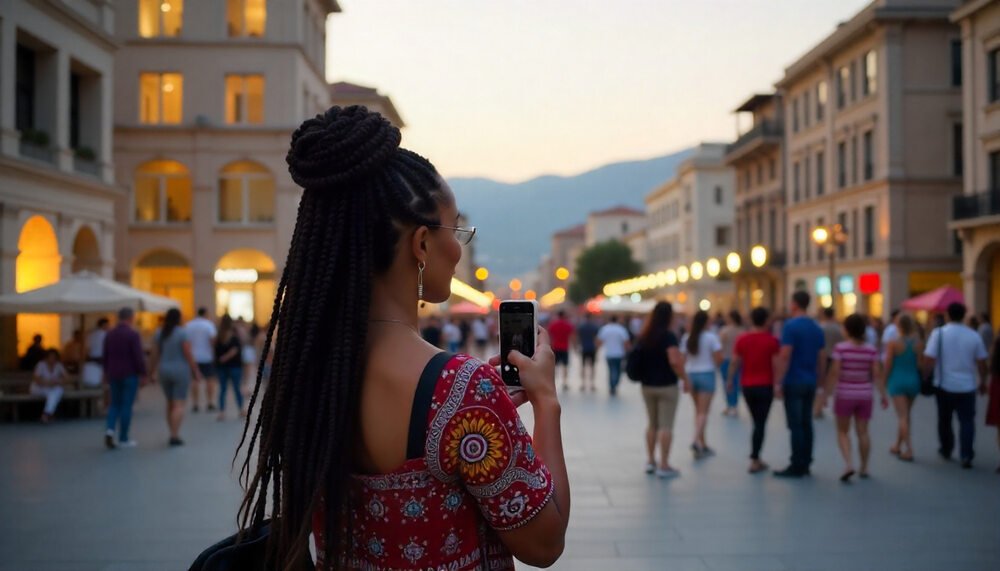The hotel sector is seeing signs of softening, particularly in the U.S., with midyear results highlighting pressures from economic uncertainty and shifting travel patterns.
Hilton and Wyndham Hotels & Resorts reported declines in revenue per available room (RevPAR) for the quarter, down 0.5% and 3%, respectively. Marriott International posted 1.5% RevPAR growth, but all three were slowed by domestic performance.
Hilton reported a 1.5% RevPAR decline in the U.S. while Wyndham reported a steeper 4% drop. Marriott’s RevPAR in the U.S. and Canada was flat.
Hilton said business travel showed particular weakness, with business transient RevPAR down 2%, and CEO Christopher Nassetta attributed the period’s declines to “holiday and calendar shifts, reduced government spending, softer international inbound business and broader economic uncertainty.” Marriott and Wyndham, meanwhile, pointed to weakness in their lower-scale chains.
Chris Nassetta
Marriott’s U.S. and Canada select-service and extended-stay RevPAR declined around 1.5% year over year. CEO Anthony Capuano said results came in below expectations in those segments, primarily due to declining demand from government and smaller business customers.
Wyndham CEO Geoffrey Ballotti said during its July 24 earnings call that “higher-for-longer interest rates, persistent inflation and uncertainty around immigration and trade have created an environment of ongoing economic volatility for economy and midscale guests, who remain especially sensitive to these dynamics.”
Wyndham’s brand stable — with flags like La Quinta, Microtel, Days Inn, Super 8 and Travelodge — is weighted more heavily toward economy and midscale than the Hilton and Marriott portfolios. Truist Securities analyst Patrick Scholes said that positioning puts Wyndham in a particularly challenging environment, with the second half of 2025 expected to continue to “be a difficult RevPAR environment for U.S. midscale and economy hotels.”
Meanwhile, weakness in the U.S. hotel industry overall has continued into the third quarter, according to STR data, which showed five consecutive weeks of domestic RevPAR decreases through late July, with the week ending July 26 down 0.8% year over year.
Travelers in wait-and-see mode
Richie Karaburun, clinical associate professor at NYU’s Jonathan M. Tisch Center of Hospitality, called the current environment “a perfect storm” of reduced government spending, lower inbound international travel from key source markets like Canada, Mexico and parts of Europe and broader economic uncertainty.
Richie Karaburun
“Consumer behavior right now is to wait and see,” Karaburun said. “People are saying we’re not going to travel this year, or we’re going to travel less. If we’re going to actually travel, it will be for one week instead of two weeks.”
This uncertainty has manifested itself in significantly shortened booking windows, a trend that has been reported in other sectors and among travel agencies. Karaburun said conversations with hoteliers indicate dramatic domestic booking compression, from between a week to 10 days to as little as three or four days.
The inbound travel slowdown particularly impacts gateway cities that have historically relied on overseas visitors. Karaburun cited New York, Boston, Washington, Las Vegas, Miami and Orlando as markets that could feel the impact most acutely.
Hotel executives still feeling pretty good
Despite the volatility, both Hilton and Wyndham executives expressed optimism about the industry’s prospects.
Hilton’s Nassetta painted a particularly bullish picture for the intermediate term, citing expectations of a “more favorable regulatory environment, certainty in tax reform, expected settling down on global trade policy, continuation of very healthy corporate profits and significant investments across a multitude of industries.”
And while he forecasted Q3 RevPAR to be “flat to modestly down again,” Hilton projects full year RevPAR to be flat to up 2%.
At Wyndham, Ballotti cited opportunities for improvement before summer’s end, with more schools starting later this year than last and with the economy “still humming” and pricing “holding steady.”
“Consumer spending on travel is continuing, despite the macro headlines,” he said, pointing to internal research that indicated more guest optimism on travel intent and less economic concerns than “last year and even last month.”
Marriott executives also highlighted bright spots in certain segments. Capuano noted continued strength in luxury, while CFO Leeny Oberg pointed to improving forward momentum in group bookings.
For the full year, Marriott expects systemwide RevPAR growth to land in the lower end of its 1.5% to 2.5% forecast range.
Karaburun, meanwhile, is “cautiously optimistic.”
“We’ve survived the pandemic, 9/11, many recessions, 2008 — and in the end, we’re always going to survive, because hospitality is a resilient industry,” he said. “There’s a little bit of up and down right now, but we’ll recover.”

























You must be logged in to post a comment Login